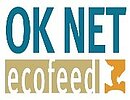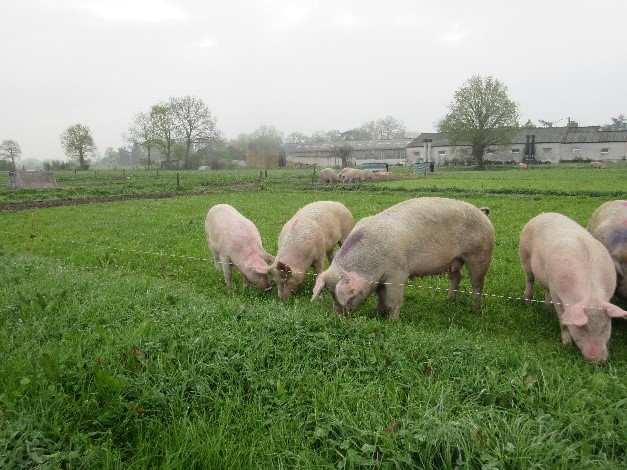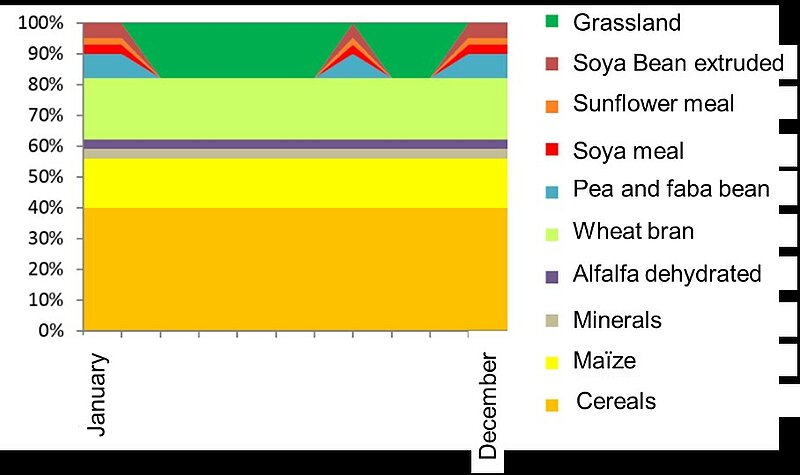Rotating pasture for pregnant sows
Problem
Feed is the biggest cost in pig farming, especially in free-range systems. In these systems, feed consumption is higher due to higher activity and higher thermal regulation needs. Outdoor sows are usually housed in huts on grass leys.
Solution
During periods of high grass growth, it is possible to reduce the amount of feed and protein content given to sows in order to get the most out of grazing. The concentrated feed can be limited to 80 % of the recommended amount for at least 3 months. At the same time, this "pasture feed" can be lower in protein. Note: from 3 weeks before farrowing, sows need a complete diet.
Benefits
With this practice, feed and production costs can be reduced by 16% due to lower quantities of concentrate feed and lower costs of "pasture feed" per ton.
Applicability box
Geographical coverage
More efficient in areas of high grassland productivi-ty
Application time
Pasturing season
Period of impact
Pasturing season
Equipment
Movable fences to contain/move sows to desired areas; pig feeders
Best in
On-farm feed processing (possibility to process low-protein feed)
Practical Recommendations
- Allow time for the grass ley to establish before sows start grazing.
- Enrich the ley with legumes to provide good nutritional value and palatability for sows.
- Harvest/remove less palatable plants that are not eaten by sows.
Further information
Video- Have a look at the following video for further instructions (French): Paturage des truies aux trinottières.
- Check the Organic Farm Knowledge platform for more practical recommendations on animal husbandry.
- ITAB (2019, online): Alimentation des monogastriques en agriculture biologique.
About this practice abstract and OK-Net EcoFeed
Publishers:Research Institute of Organic Agriculture (FiBL),
CH5070Frick,
Phone +41 62 865 72 72,
info.suisse@fibl.org,
www.fibl.orgIFOAM Organics Europe,
BE1000Brussels,
Phone +32 2 280 12 23,
www.organicseurope.bio,
www.organicseurope.bioInstitut de l'agriculture et de l'alimentation biologiques (ITAB),
FR75595Paris,
Phone +33 01 40 04 50 64,
,
www.itab.asso.fr
Contact: antoine.roinsard@itab.asso.fr
Permalink: https://organic-farmknowledge.org/tool/35449
https://orgprints.org/view/projects/OKNetEcoFeed.html
This practice abstract was elaborated in the Organic Knowledge Network on Monogastric Animal Feed project. The project is running from January 2018 to December 2020. The overall aim of OKNet EcoFeed is to help farmers, breeders and the organic feed processing industry in achieving the goal of 100% use of organic and regional feed for monogastrics.
Project website: https://ok-net-ecofeed.eu/
IFOAM Organics Europe (project coordinator), BE; Aarhus University (ICROFS), DK; Organic Research Centre (ORC), UK; Institut Technique de l'Agriculture Biologique (ITAB), FR; Research Institute of Organic Agriculture (FiBL), CH; Bioland, DE; Associazione Italiana perl'Agricoltura Biologica (AIAB), IT; Donau Soja DS, AT; Swedish University of Agricultural Sciences, SE; ECOVALIA, ES; Soil Association, UK.



This project has received funding from the European Union’s Horizon 2020 research and innovation programme under grant agreement No 773911. This communication only reflects the author’s view. The Research Executive Agency is not responsible for any use that may be made of the information provided. The authors and editors do not assume responsibility or liability for any possible factual inaccuracies or damage resulting from the application of the recommendations in this practice abstract

